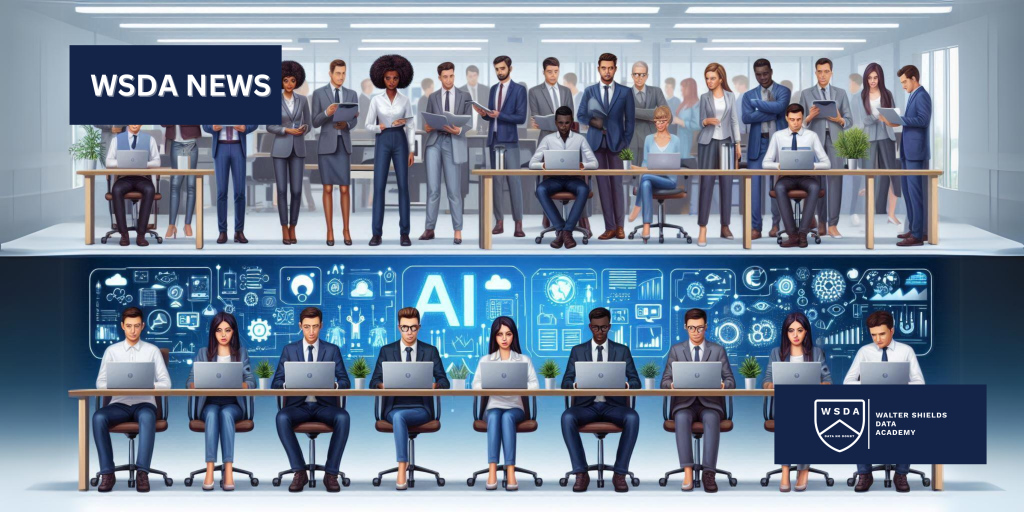AI Skills in the Workforce Will Be as Critical as knowing Microsoft Word

Why AI Skills Are Now as Essential as Basic Office Tools
Artificial intelligence (AI) is no longer a futuristic concept reserved for tech experts. Today, AI is reshaping industries and becoming as essential as learning to use Microsoft Word or Excel. For professionals, students, and job seekers looking to stay competitive, understanding AI is becoming a necessary skill. Mastering AI might soon be as crucial as creating spreadsheets or formatting documents, marking a significant shift in workplace expectations.
The Increasing Demand for AI Literacy
AI literacy is rapidly becoming a core requirement across industries. A report from Adzuna revealed that in the UK alone, there are over 28,000 job listings that specifically require AI knowledge. Notably, one-third of these roles are outside the tech industry, illustrating how AI has infiltrated sectors like finance, healthcare, and education. This widespread need for AI understanding signals that soon, most office roles may require at least a basic familiarity with AI.
Professor Andrew Rogoyski from the Surrey Institute for People-Centred Artificial Intelligence underscores this shift, comparing AI skills to the once-novel demand for proficiency in Microsoft Office. Just as being able to navigate Word and Excel became a baseline expectation for most jobs, AI competency is following the same trajectory.
Addressing the Digital Skills Gap
While AI skills are increasingly necessary, there’s a growing concern about the digital divide. In the UK alone, around 10 million people still lack access to or comfort with digital technology. This gap threatens to widen as AI becomes more embedded in job roles. Those who possess AI skills will likely have an advantage in the job market, leaving behind individuals without access to these learning opportunities.
For job seekers and professionals, this means that gaining even basic AI skills could significantly improve job prospects. Free and accessible learning platforms, like Coursera or Google’s AI certifications, can help bridge this gap by offering foundational courses in AI that are accessible to a wide audience.
AI’s Influence on Job Markets
AI is transforming how we approach work, but it also raises concerns about job displacement. A report by the Oxford Internet Institute highlights that AI expertise is starting to outweigh traditional academic qualifications in certain fields. Meanwhile, the Institute for Public Policy Research (IPPR) warns that without thoughtful planning, AI could result in job losses, particularly in sectors vulnerable to automation.
However, it’s not all doom and gloom. With strategic investment in AI education and upskilling, AI can enhance human roles rather than replace them. For instance, AI can handle repetitive, mundane tasks, freeing up employees to focus on higher-level work that requires critical thinking and creativity. This synergy between AI and human skills could lead to the creation of new roles and industries.
Balancing AI Efficiency with Human Oversight
While AI has enormous potential, it must be integrated thoughtfully. AI systems like ChatGPT can streamline tasks such as writing, summarizing, or data analysis, but they are not infallible. Without human oversight, AI’s efficiency can lead to complications. For example, processes may become overly automated, leading to a ‘process collapse,’ where AI-driven systems screen AI-generated applications, creating a loop that lacks human intuition and nuance.
The key is to maintain a balance where AI complements human capabilities. AI should simplify workflows, not add unnecessary layers of complexity. Organizations that thoughtfully implement AI, ensuring it enhances human oversight, will benefit most from this technology.
Preparing for an AI-Driven Future
AI skills are quickly becoming a non-negotiable part of career readiness. For those looking to advance in their careers, investing time in learning AI basics is crucial. Whether you’re a student entering the workforce or a seasoned professional aiming to stay relevant, AI literacy is now an essential part of staying competitive.
By investing in AI education today, individuals and organizations can navigate the rapidly evolving job market with confidence, ensuring that AI becomes a valuable tool rather than a disruptive force. As AI continues to grow in importance, understanding how to work alongside this technology will be as commonplace as using a word processor, ultimately empowering us to thrive in our careers.
Data No Doubt! Check out WSDALearning.ai and start learning Data Analytics and Data Science Today!

